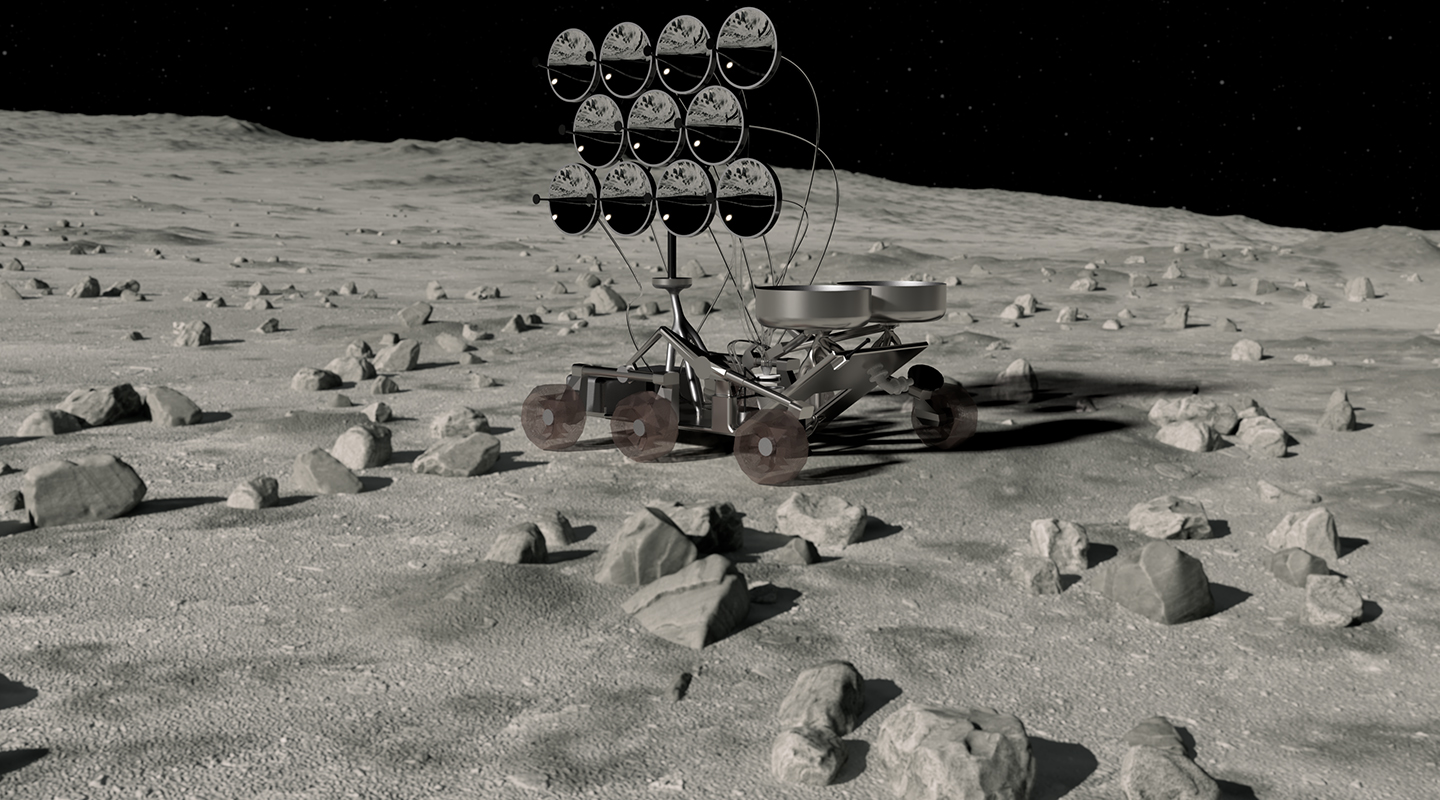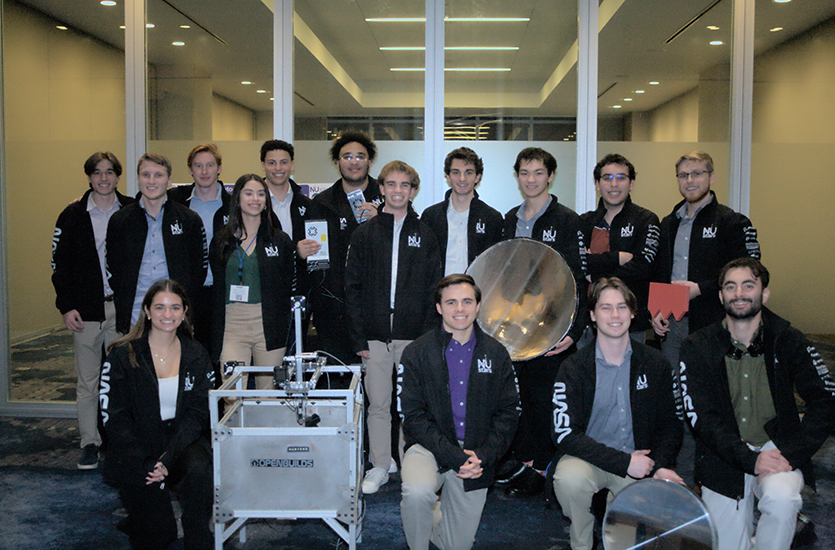Northwestern Engineering Team Wins NASA Prize
The group won the Systems Engineering Award at the BIG Challenge Finals

A group of Northwestern Engineering students selected by NASA to help establish a human presence on the Moon has earned a prize for their efforts.
The team was awarded the Systems Engineering Award by a panel of NASA experts at the 2023 Lunar Forge Forum held in November at the Glenn Research Center in Cleveland. An annual competition, the 2023 edition of NASA’s Breakthrough, Innovative and Game-Changing (BIG) Challenge asked college students to advance a future metal production pipeline on the Moon – from extracting metal from lunar minerals to creating structures and tools.
The proposal from the interdisciplinary Northwestern team was one of seven selected for funding earlier this year. Their idea, “ACRE: Autonomous Casting RovEr,” received $167,928.38 in funding and was led by recent materials science and engineering (MSE) graduate and current PhD student at the MIT department of materials science and engineering Jaime Berkovich (’23), with co-captains Julian Rocher (mechanical engineering undergraduate/master’s) and Ben Taalman (MSE undergraduate/master’s). The team was advised by the McCormick School of Engineering’s Ian McCue, assistant professor and the Morris E. Fine Junior Professor in Materials and Manufacturing.
“Undertaking the lunar forge challenge over the past 14 months has taught me to ignore my own perceived limitations and to never doubt the capabilities of my peers. When Julian, Ben, and I started the team in September 2022, none of us were experts on metallurgy or the lunar environment. Everything that we or any other member of the ACRE team accomplished was because of our unrelenting and consistent dedication to learning,” Berkovich said. “Whether it was during the late nights spent solving thermodynamics equations, the countless phone calls with vacuum chamber manufacturers and industry sponsors, the hours spent in the Ford building constructing test equipment, or any other aspect of the project, I could feel that there was passion in every step the team took towards its goals. I am incredibly proud of the work my team has done, and I can't wait to see the incredible engineering feats they achieve for the 2024 BIG Idea Challenge.”

The team’s proposed Autonomous Casting RovEr is a method to use concentrated solar energy to cast landing pads and roads into the surface of the Moon, utilizing regolith, the ultrafine, silty material that covers the planetary satellite. The team split the problem into four key subtasks: solar heating, crucible design, plow design and verification, and materials processing. Metal feedstock can be easily melted on-the-fly by combining parabolic mirrors, reflectors, optical waveguide cables, a tungsten susceptor, and a highly insulating ceramic crucible. Non-beneficiated regolith is envisioned to be incorporated into the molten metal, forming a metal matrix composite which is cast directly into molds created by furrowing the porous lunar regolith.
Along with Berkovich, Rocher, and Taalman, the team included students from the following Northwestern Engineering departments:
- Chemical and Biological Engineering: Luke Fahrney (undergraduate), Ian Falck (undergraduate)
- Civil and Environmental Engineering: Liam O’Malley (undergraduate)
- Electrical and Computer Engineering: Vishu Gupta (recent PhD recipient), Robert Cloninger (undergraduate)
- Materials Science and Engineering: Daniel Guo (undergraduate), Camille Layden (undergraduate), Liam Warlick (undergraduate), Catherine Ott (PhD candidate), Sam Price (PhD candidate)
- Mechanical Engineering: Trevor Abbott (undergraduate), Xitlalli Castañeda (undergraduate), Margaret Gao (undergraduate), Fiona Ireland (undergraduate), Eliseu Antonio Kloster Filho (undergraduate), Elaine Liu (recent graduate; master’s candidate at Stanford University), Daniel Lynch (PhD candidate), Rebecca Goldenson (undergraduate), Zofia Muller-Hinnant (undergraduate), Tyler Nanoff (graduate, PhD student at the University of Michigan mechanical engineering), Matthew Queen (master’s candidate), Justin Chang Stauffer (undergraduate), Shane Grayson (undergraduate)